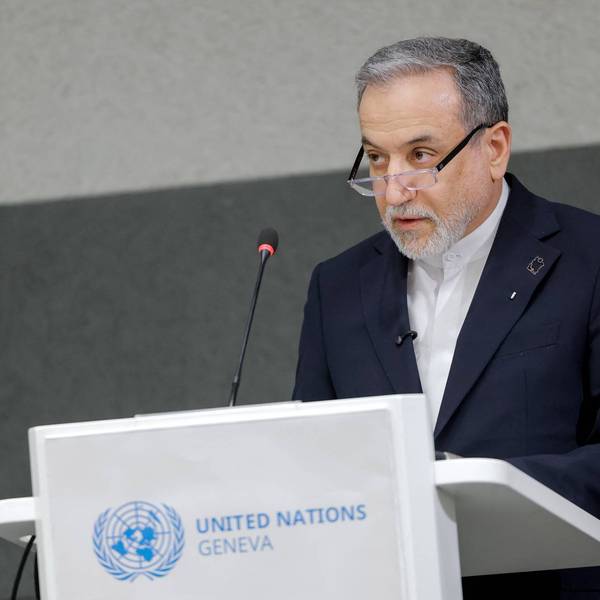"We're not expecting a breakthrough on this trip," Martin Indyk, the State Department's mediator on the conflict, said today in a supposedly-anonymous briefing on this week's urgent round of peace talks in Ramallah and Jerusalem.
Indyk said there is no "agreement" between the parties, but Secretary of State John Kerry is seeking an agreement on a "framework" for continued talks, not so different from the Clinton parameters of 2000. Indyk, a longtime advocate for Israel, said part of the framework is a possible announcement of final borders of a Palestinian state:
We're trying to reach an understanding on what the final borders will be.
The briefing was supposedly anonymous- "with a Senior State Department Official who will be previewing the Secretary's trip to Jerusalem and Ramallah this week"- but the first clue to Indyk's identity came when the anonymous official mentioned his "35-year experience on this particular conflict." Then the briefing's unnamed moderator outed him: "It's an agreement on the terms, as Martin said- right- which has not been achieved in the past, at least in recent history."
The transcript has now been changed, and "Martin" has been replaced by "Senior State Department Official."
It seems like nothing concrete will be achieved this week. Here are some of Indyk's hedges on what the negotiators might or might not do:
We're not expecting a breakthrough on this trip. There's a lot of work that lies ahead in terms of getting the parties to a point where they're agreed on this framework....
[W]hat we're trying to achieve here - agreement on a framework that would serve as guidelines for the permanent status negotiations and that would address all of the core issues...
I don't imagine that we're going to have a signing ceremony for this. This is a framework - an agreed framework, not an agreement that - a signed agreement...
They resemble the Clinton parameters in terms of our ideas in some respects, in that - in the sense that some of the ideas are more detailed than others. So there's a kind of range between what you call principles and parameters, and we're kind of somewhere in between because some issues require greater specificity and some issues require more general principles. So it's a kind of fluid arrangement...
[T]his is not an effort to achieve an interim agreement. It is an effort to provide agreed guidelines for a permanent status agreement, that is to say a full and final peace treaty between the parties. And that purpose here is, in effect, if you like, to - for the Secretary to climb with the two leaders to the top of the hill and be able to share with them the view of what's on the other side...
Anne Gearan of the Washington Post tried to pin Indyk down. "We still have some confusion over what a framework agreement actually is and means." Have they got a deal? she asked. Not yet, Indyk said.
We are making a deal. Yes, we are making a deal, definitely. It's a deal - that's what we hope to make, I should say - that would be a big step forward on the way to achieving a final status agreement or a permanent status agreement or a peace treaty, whatever you want to call it.
They haven't even got the framework. That's what they're trying to get to.
The framework is a basis upon which one could negotiate the final peace treaty, because the outlines or the guidelines for what the final deal would look like would be agreed upon, and then you would work intensively to fill out the details.... It's a two-stage process in our minds: agreement on a framework for negotiations; and then a permanent status agreement or a peace treaty,
This is amusing. From Indyk:
It's a first step that facilitates the achievement of a final status agreement by defining the agreed guidelines for that final status agreement. Is that clear?
Now are you clear? And the borders language is as vague as ever:
[T]he United States' position [is] that the two-state solution should be based on a Palestinian state established upon the '67 lines plus swaps to take account of subsequent development.



